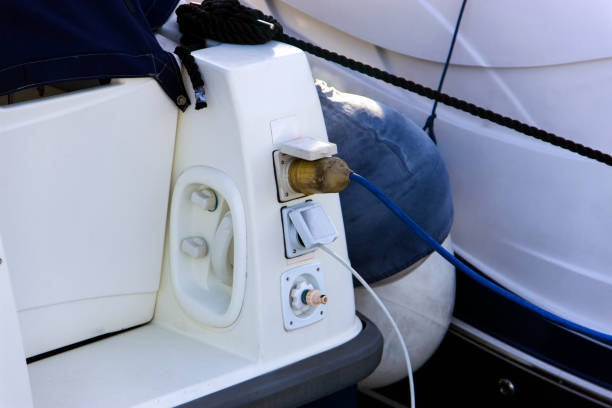The tranquil waters of Indonesia’s archipelago have long been a haven for boating enthusiasts and marine adventurers. Lately, a green movement has surged in Indonesia’s boating sector: the emergence of electric outboard motors, an eco-conscious trend. Indonesia embraces electric propulsion, revolutionizing boating and contributing to marine conservation amid global sustainability pursuits. We delve into the transformative journey of electric outboard motor in Indonesia and how they shape the boating future in this vibrant nation.
Embracing Sustainable Power: The Electric Outboard Revolution
Indonesia, with its breathtaking coastlines and extensive network of rivers, has always had a close relationship with the water. However, the reliance on conventional outboard motors powered by gasoline or diesel has posed challenges to both the environment and boating enthusiasts. Enter the electric outboard motor, a clean and efficient alternative gaining momentum in the Indonesian market. With zero emissions, reduced noise pollution, and lower operating costs, electric outboard motors offer a promising solution to the environmental concerns associated with traditional marine engines.
Advantages for Boaters and the Environment
One of the key advantages of electric outboard motors is their minimal impact on the delicate marine ecosystems that Indonesia is renowned for. These motors produce no harmful exhaust fumes, preventing air and water pollution. This, in turn, safeguards the health of marine life and preserves the pristine beauty of Indonesia’s waters. Boaters can also enjoy quieter journeys, connecting them more intimately with their surroundings and experiencing nature without disturbing its tranquility.
Read More:
Simple Packing Guide on Your First Komodo Liveaboard
Tips for Planning a Journey to Komodo Island
Infrastructure and Charging Networks: A Growing Support System
For any emerging technology to thrive, a robust support infrastructure is essential. In Indonesia, this is becoming a reality as the government and private entities recognize the potential of electric outboard motors. Charging networks are gradually being established in marinas and docking points across the archipelago. This development enables boaters to charge their electric motors conveniently and stimulates economic growth in marine tourism. As these networks expand, the adoption of electric outboard motors is expected to accelerate.

Overcoming Challenges: Range and Education
While the benefits of electric outboard motors are evident, challenges remain. The limited range of some electric models can be a concern for boaters looking to venture far into the expansive Indonesian waters. However, advancements in battery technology are steadily addressing this issue, extending the range and duration of electric marine propulsion. Additionally, education plays a vital role in encouraging the widespread adoption of this technology. Educating sailors on electric outboard benefits, usage, and upkeep is vital to debunk myths and instilling trust in this innovation.
Government Initiatives and Incentives
Its government initiatives and incentives reflect Indonesia’s commitment to sustainable marine practices. By offering tax breaks and subsidies for electric outboard motor purchases, the government is actively promoting the transition to cleaner marine propulsion. These measures encourage boaters to embrace technology and underline Indonesia’s dedication to preserving its natural treasures for future generations.
Collaborative Innovation: Manufacturers and Environmentalists Unite
The rise of electric outboard motor in Indonesia is a technological shift and a collaborative endeavor between manufacturers and environmental advocates. Manufacturers continuously improve electric motors’ efficiency, performance, and affordability through partnerships and research. Simultaneously, environmental organizations partner with boaters to promote electric propulsion benefits and responsible practices within the community.